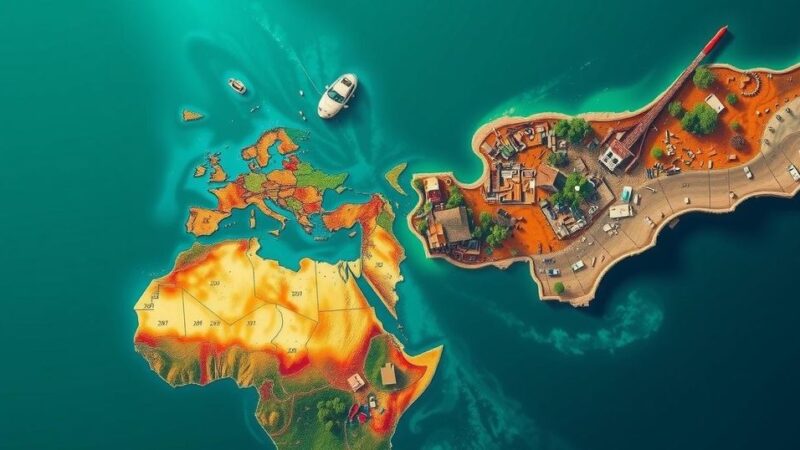COP29 highlighted the urgent need to integrate education into climate finance to combat the detrimental effects of climate change on children’s schooling. Initiatives by the Education Cannot Wait organization focus on anticipatory action to protect students in vulnerable regions, stressing the correlation between the climate crisis and education crisis. As discussions progress towards COP30, the need for increased financial support for education in climate strategies becomes clear.
As global crises push millions of children out of school, there is a strong call for integrating education into climate finance discussions, particularly during COP29 in Baku. This initiative seeks to enhance the role of education in mitigating the adverse effects of climate change on vulnerable communities. The Education Cannot Wait (ECW) program has initiated pilot projects in regions like Somalia and Afghanistan, focusing on early actions to safeguard educational opportunities for children affected by climate-related disruptions. During various side events at COP29, stakeholders emphasized the importance of anticipatory action and collaboration in protecting education from climate impacts. ECW’s Climate Champion, Adenike Oladosu, highlighted the notion that the climate crisis directly correlates with the education crisis, stressing the need for investment in climate-resilient educational infrastructure. The damaging effects of extreme weather were illustrated through Zulekha, an advisor in Pakistan, who noted that severe flooding in 2022 destroyed thousands of schools and displaced millions of children. The discussions also included the necessity for leveraging data to predict and respond to climate shocks proactively, ensuring that funding is available for immediate educational needs in emergencies. Moreover, it was reported that only a small fraction of climate finance, about 0.03 percent, is allocated to education, indicating a significant gap in prioritization. Looking ahead to COP30, ECW urges that proper integration of education into climate-related financial strategies is essential, particularly concerning the newly established Loss and Damage Fund. Such actions are critical, especially in light of statistics indicating that investment in girls’ education yields significant economic returns. It is imperative that all children, particularly those in the most vulnerable situations, receive the educational opportunities they deserve amid increasing climate challenges.
The article underscores the critical intersection between education and climate finance, particularly in the context of ongoing global crises that threaten educational access for millions of children. At COP29, significant discussions were held regarding the implications of climate change on education systems, emphasizing that education is not merely a sector but essential for building resilient communities. With pilot programs launched in regions heavily impacted by climate crises, the importance of anticipatory actions and funding for education to protect future generations is highlighted.
In summary, the integration of education into climate finance is crucial for fostering resilience in vulnerable communities facing the overwhelming challenges of climate change. The necessity for anticipatory actions, proactive funding strategies, and prioritization of education within climate finance frameworks must be emphasized to safeguard children’s futures. As stakeholders prepare for COP30, the focus remains on ensuring that educational opportunities are accessible to all, particularly in regions most at risk of climate-induced disruptions.
Original Source: www.ipsnews.net






